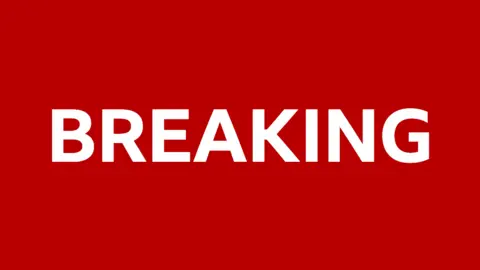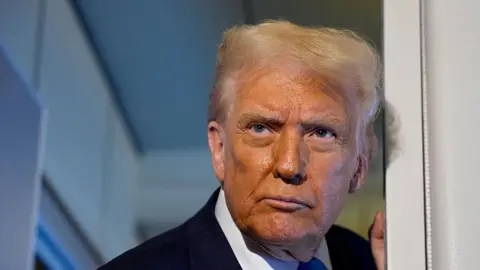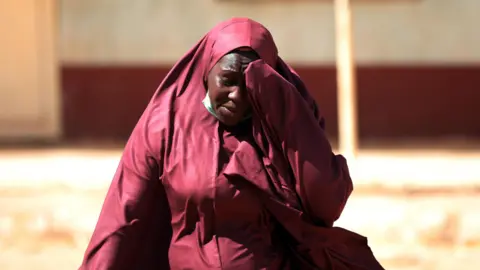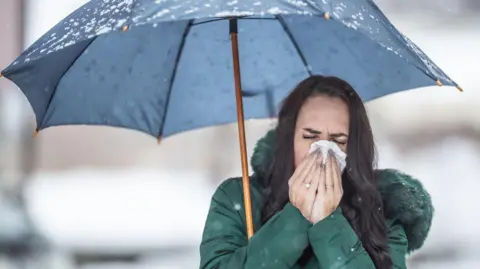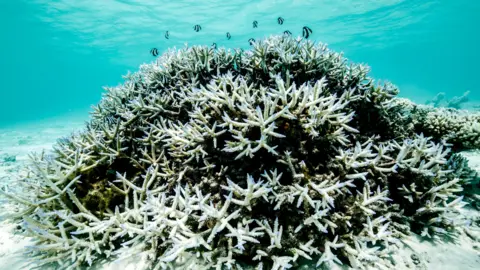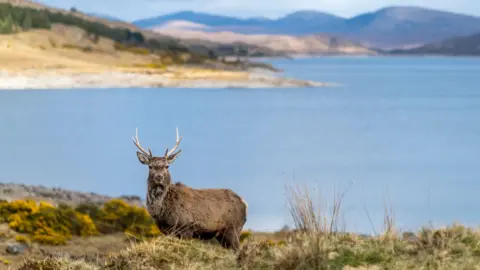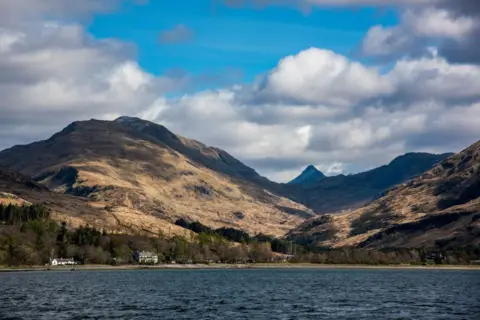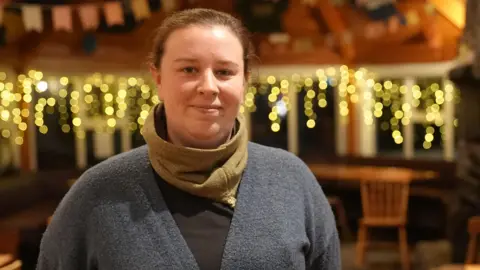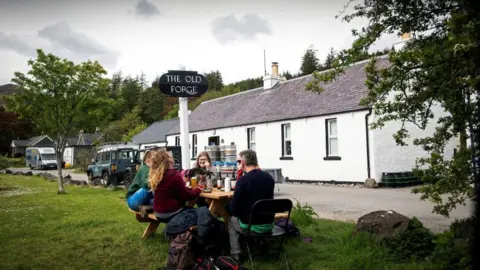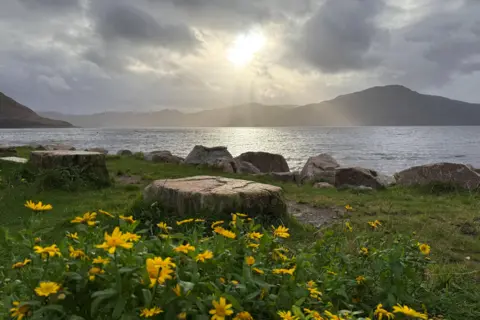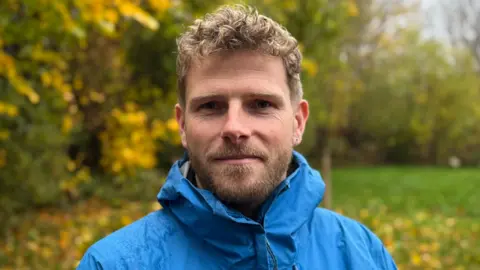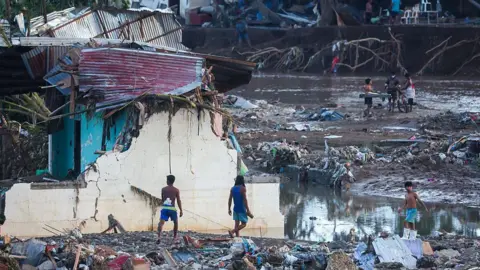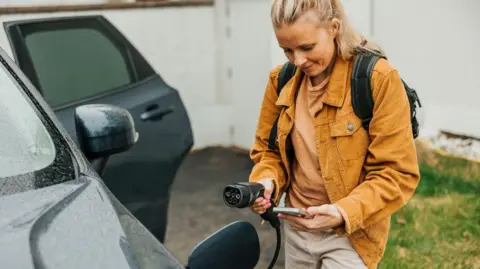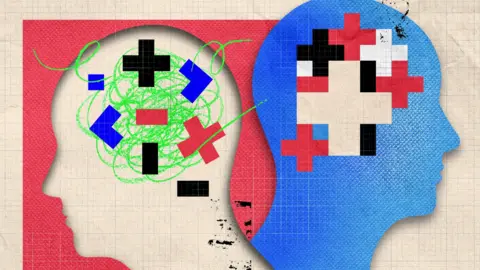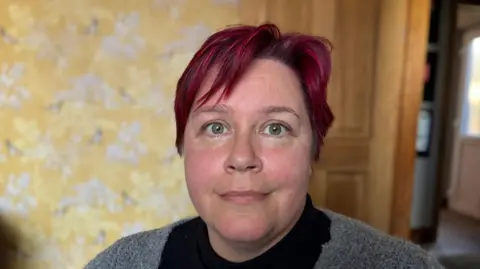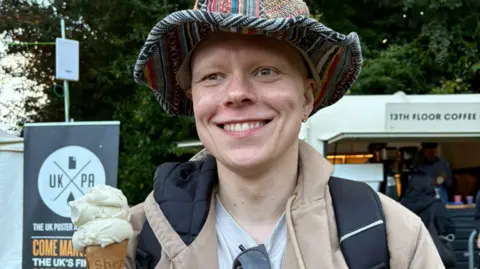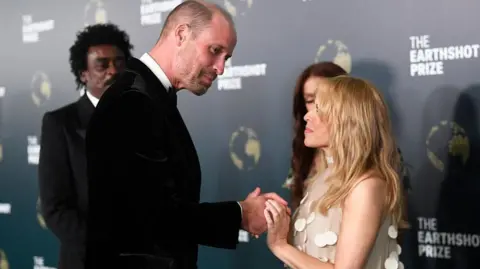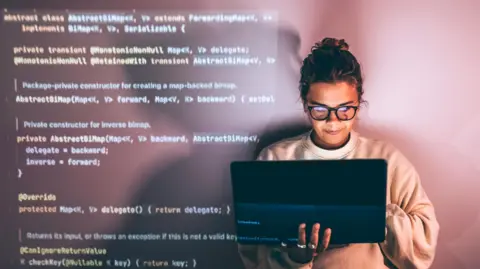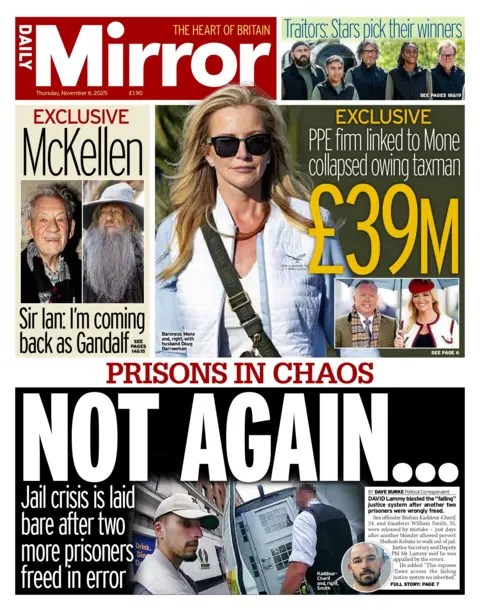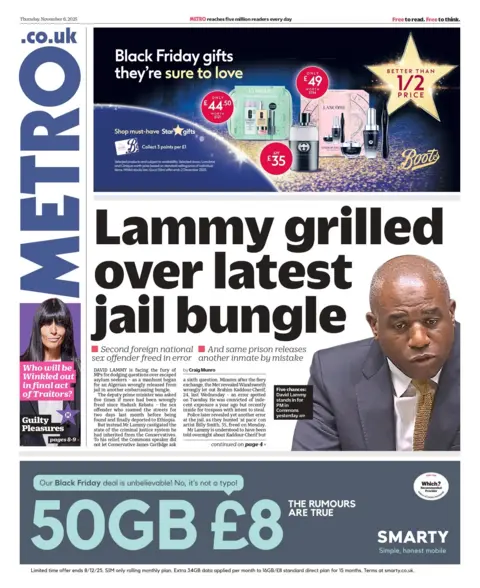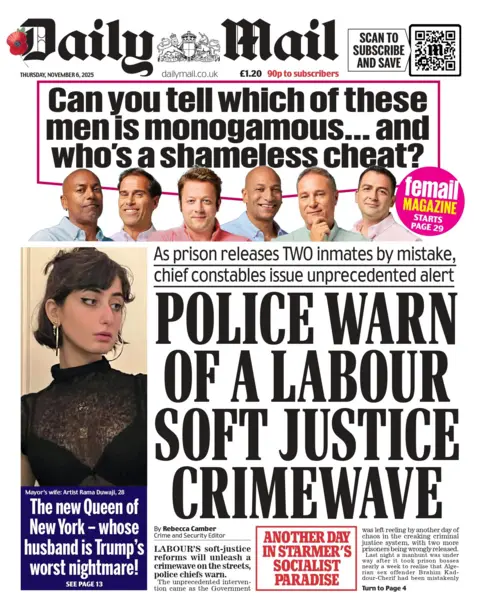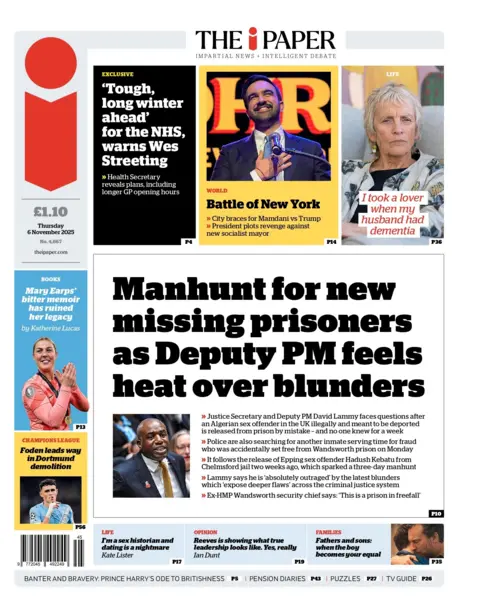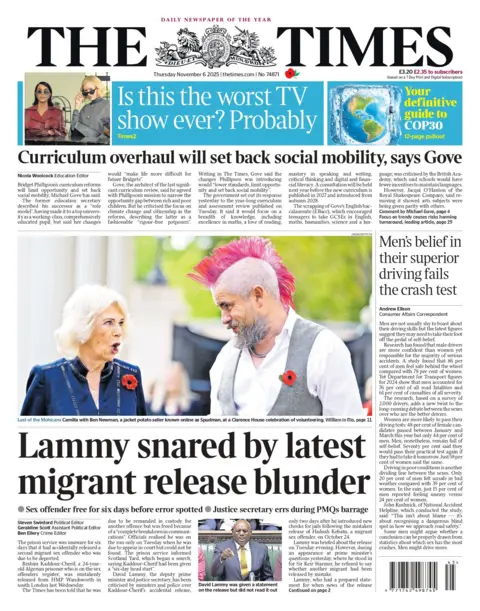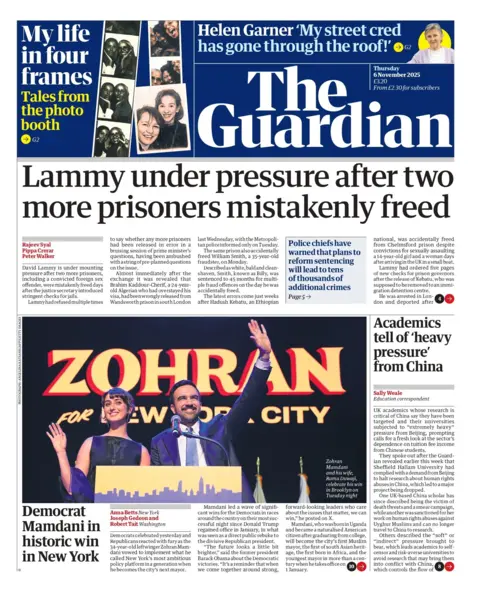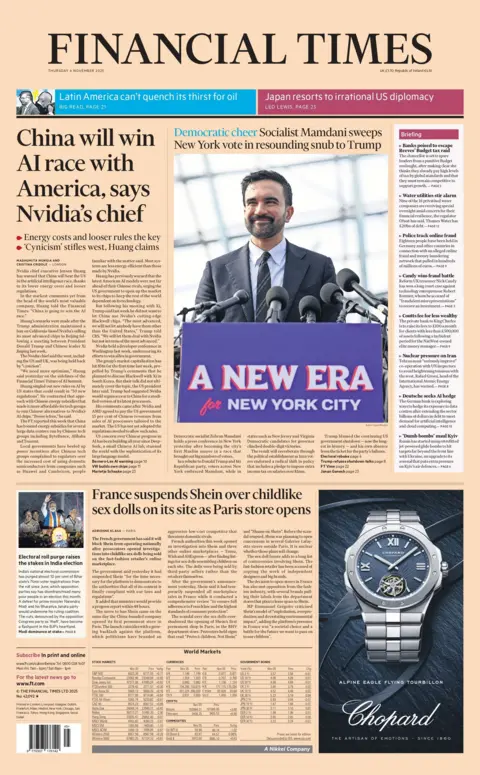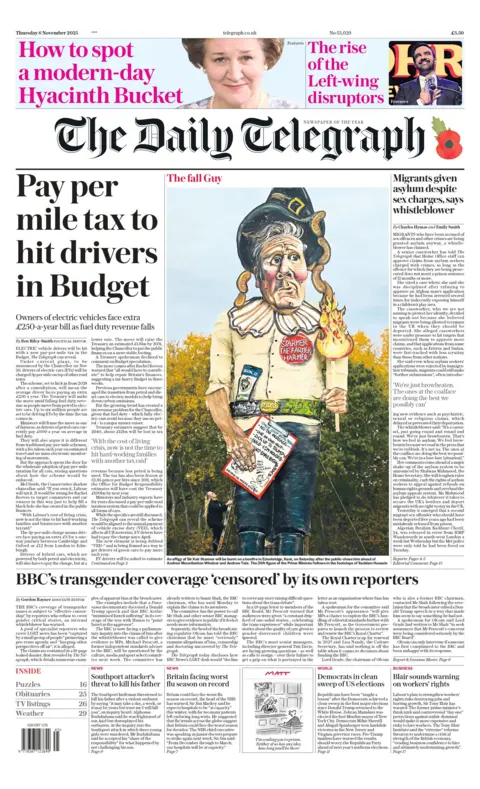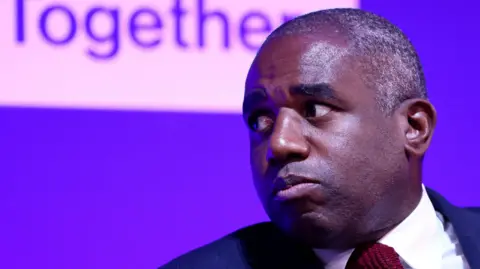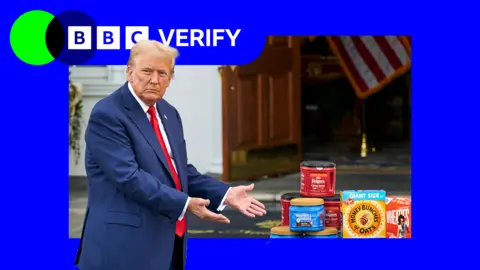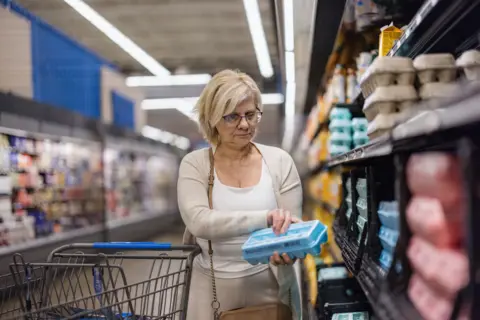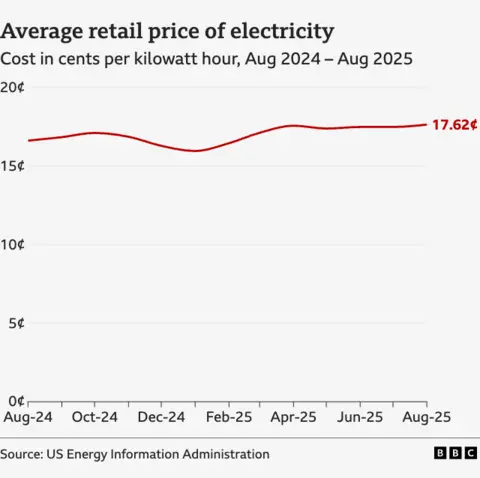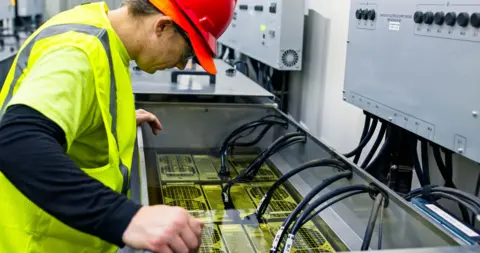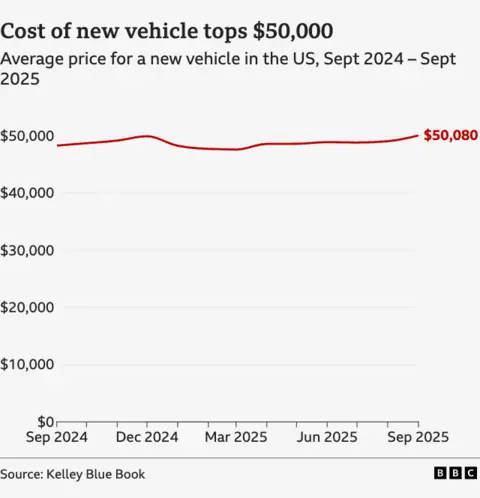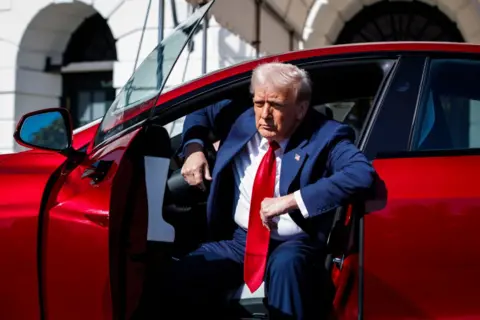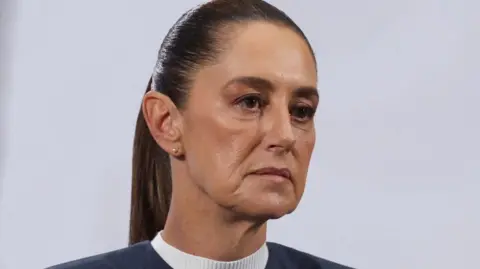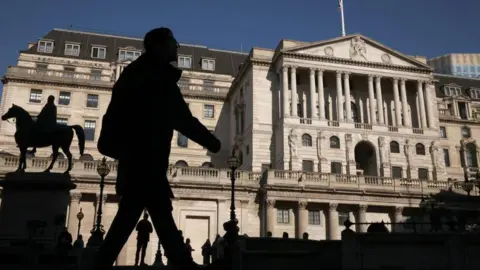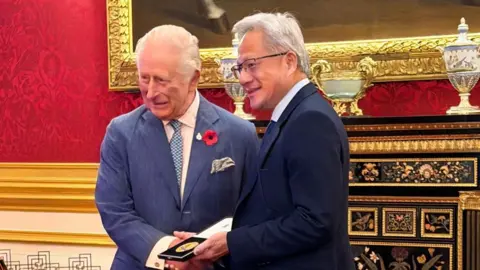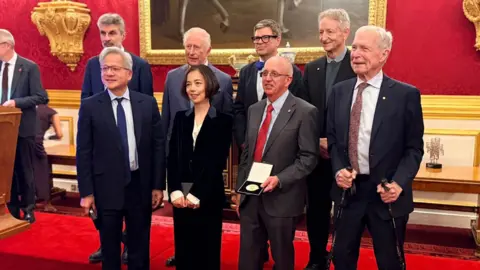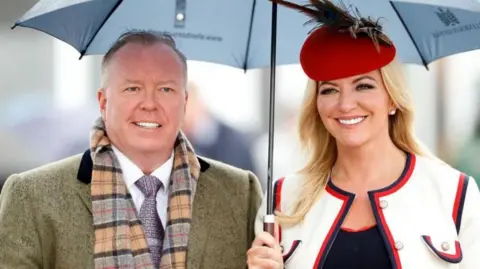Crime fixer caught by BBC offering to erase £60k fines on migrant workers
A man at the centre of an organised crime network has been secretly filmed telling BBC undercover reporters how he can help to erase fines of up to £60,000 for employing illegal workers.
The self-described "accountant" is among a group of Kurdish men, first exposed in a BBC investigation on Tuesday, who enable migrants to work illegally in mini-marts, by registering the businesses in their own name.
The man, who goes by the name of Shaxawan, told the two journalists that he and his associates could help migrants - including asylum seekers - to set up businesses illegally and "confuse" immigration enforcement.
Operating from a solicitor's office in Huddersfield, he said he had "customers in every city".
In Companies House listings, Shaxawan is named as Kardos Mateen, a British resident in his 30s, and has been the director of 18 businesses across the north of England.
When later confronted by us, with details of his claims, he denied any wrongdoing.
Trading Standards confirmed it has found illegal cigarettes being sold in many businesses registered under the name Kardos Mateen, and the BBC was sold counterfeit tobacco in four mini-marts where he was listed as the director.
The BBC News two-part investigation has revealed the sophistication and scale of criminal networks profiting from undocumented working on UK High Streets. Loose regulation of Britian's labour market is acting as a pull factor for those entering the UK illegally, the government has acknowledged.
Shaxawan made several claims to our reporters:
- He could set up a company and provide bank cards and a card machine to accept payments from customers for one of our undercover reporters, believing him to be an asylum seeker
- His network could "confuse" Immigration Enforcement teams which "won't have the time" to check details
- Fake directors would be paid to register mini-marts in their own names, while illegal workers, including asylum seekers, would actually run the businesses
- In separate deals, other people referred to as "ghost names" would be paid to put their names to large fines for illegal working
- An "English woman" in the network would help reduce hefty fines to "zero" and deal with other issues like electricity, gas and bailiffs
Our reporters also spoke to a paralegal, with Shaxawan present, who offered to "make documents", including "business agreements", to avoid fines.
'I'll make sure you have no issues'
It took months to set up the first meeting with Shaxawan.
He pulled up at a busy Manchester retail park in a white 4x4 BMW, in the belief he was meeting an asylum seeker who was looking to run a mini-mart and sell illegal cigarettes.
In fact, he was meeting Saman (not his real name), a Kurdish journalist working undercover for the BBC.
In a cafe, Shaxawan freely shared details of what he and his associates were able to offer: "We are a group. Each of us provides a service and works together," he said.
He explained how he worked with an "English woman who dealt with electricity, gas and bailiffs". And when Immigration Enforcement issues a fine, he added, "she makes it zero".
"I will… set up your company, provide the [card] machine, get you electricity, speak to your landlord," Shaxawan assured him. "I'll make sure you have no issues."

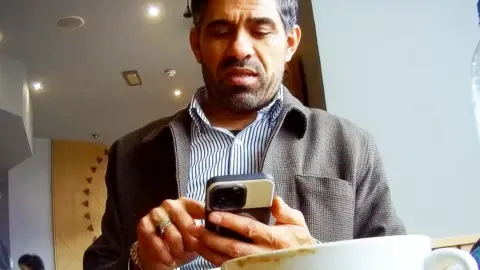
He told Saman that he should register a mini-mart business in the name of someone else - what is sometimes known as a "ghost director". This would cost £400 per month, and getting access to a business bank card would require a one-off payment of £140, he said.
The ghost director would be the one to "take the risk" if the shop was raided by law enforcement and fines issued, he explained.
"That's why you're paying," he said.
To show he was genuine and to provide reassurance, Shaxawan called someone he said could act as ghost director.
Saman explained to the man on the phone that he did not have asylum status.
"Don't worry" came the reply. "As Mr Shaxawan says, send the money at the end of the month."
ID documents sent to Saman by phone swiftly after his meeting with Shaxawan, revealed that the potential ghost director was a 28-year-old from Iran called Bryar Mohammed Zada.
Mr Zada has racked up company directorships for 20 car washes and mini-marts from Newcastle upon Tyne to Essex in the past 12 months, according to Companies House records.
Undercover journalists found illegal cigarettes being sold at four of Mr Zada's businesses.
Mr Zada did not respond to the BBC's questions.
Saman later called Shaxawan asking for a second meeting, and Shaxawan suggested they meet at RKS Solicitors in Huddersfield.
The firm is registered with the Law Society and has branches in Dewsbury and Sheffield.
The meeting was arranged on the premise Saman needed help to deal with an illegal working fine which had been given to a family member.
There is no mention of the names "Shaxawan" or "Mateen" on the firm's website.
But Saman had called Shaxawan when he was outside the solicitors, and Shaxawan opened the front door, and welcomed him in.
He led our reporter upstairs to an office, where he outlined how Saman's family member could avoid the fine, transferring company details to someone else for a fee.
RKS Solicitors told the BBC it had no connection to any alleged immigration or fine-related misconduct.
Fines turned to 'zero'
We later got our second undercover reporter, "Ali", who is also Kurdish, to investigate further by calling the same RKS Solicitors branch - but without mentioning Shaxawan.
Posing as a Kurdish mini-mart owner, he told the woman who answered the phone that he had received a £60,000 fine from Immigration Enforcement for employing two people without the right to work.
He was given an appointment with Zohaib Hussain, who is listed on RKS's website as a paralegal - someone who can advise on legal matters but is not a qualified solicitor and works under supervision.
As Ali was arriving for his appointment with Mr Hussain at the RKS offices, he came across Shaxawan outside. On the street, Shaxawan repeated the claim he had made to Saman - that he could make fines go to "zero" with no comeback from authorities.
Shaxawan again referred to the "English woman" he mentioned in the earlier meeting, and said she could make sure that fines for illegal working were reassigned to other people, as if they were the culpable business owner.
Shaxawan said these would be Hungarians who "live nearby". They would be paid between £2,000-£3,000 and their names would be used to assume liability for the fines.
He did not give any more details, but an immigration lawyer we spoke to suggested this could work much like receiving a speeding fine, and giving the name of someone else on the paperwork as the person who was driving - and therefore liable to pay the penalty.
Shaxawan said the overall cost to Ali would be about £4,600 per illegal worker. He said he had done this successfully in "Manchester, Birmingham, Blackpool and Leeds", with the process usually taking about four weeks.
He added Ali's company would then need to be closed, reopened and re-registered under a new name.
Ali was then let into the RKS branch, and Shaxawan came inside too. Inside an office, Shaxawan showed him documents on his phone detailing the people he claimed to have helped before.
Shaxawan claimed the scam would confuse Immigration Enforcement officers who would not have time to check the details.
Ali was then introduced to the paralegal, Zohaib Hussain. Shaxawan stayed in the room throughout the meeting.
Speaking quickly and in a hushed tone, Mr Hussain fired questions at our reporter about his cover story - the mini-mart and the immigration fine.
"How many illegal workers? So how much is the fine? How many times did they catch you?"
Then, with a chuckle, he asked what was sold in the mini-mart: "Do you sell vapes? Legal or illegal? Bit of both as well?"
When Ali said his mini-mart was registered under someone else's name, Mr Hussain said: "Very clever then, already very clever."
The first step, Mr Hussain said, would be to deal with the fine.
If Ali was not let off the fine, he continued, "we will look at certain other things that we have to do as precautions".
"Sometimes we might have to make documents," said Mr Hussain, such as "business agreements".
Ali then asked if the fine would be transferred to someone else's name. Mr Hussain said that would be "the last resort."
Before the meeting ended, Mr Hussain warned that the immigration authorities would want to jump on the fine straight away - making a cutting-motion across his throat.
He said his charges would be £3,500 and he "would look after us". He then asked Ali to share any future Immigration Enforcement letters with Shaxawan.

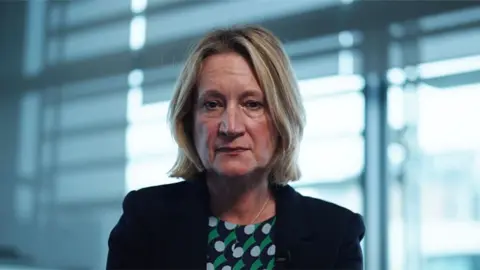
We showed our undercover filming and translations to senior immigration lawyer Bryony Rest, who told us Hussain was "clearly offering to falsify documents".
There were "likely fraud and immigration offences" taking place, she said, and she would expect law enforcement to investigate.
When we later contacted Mr Hussain for comment he replied by email saying he denied "all allegations, insinuations, and claims" we had put to him.
"For clarity, the individual named in your correspondence, Mr Shaxawan Jawad, is not associated with me in any capacity; professional, personal, or otherwise."
In a statement to the BBC, RKS Solicitors said the company was carrying out an internal review and "the individual concerned" had been suspended pending further investigation.
"We are already informing" the Solicitors Regulation Authority (SRA), it added.
"Mr Hussain is employed as a paralegal under strict supervision… The individual is not authorised or instructed to provide immigration and tax advice."
The firm did not comment on Shaxawan Jawad. It said it did not condone unlawful conduct and was committed to the "highest standards of professionalism, integrity, and public service".
Shaxawan, otherwise known as Kardos Mateen, told us by email that he categorically denied "every allegation, insinuation and claim made" in our reporting, and said that he was "not employed by, associated with, or acting on behalf of RKS Solicitors in any capacity".
Home secretary Shabana Mahmood, said the Home Office would investigate the BBC's findings.
"Illegal working and linked organised criminality creates an incentive for people to come here illegally. We will not stand for it," she said.
Additional reporting Phill Edwards and Kirstie Brewer


